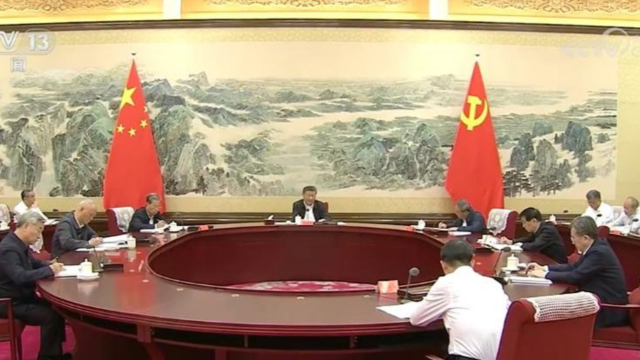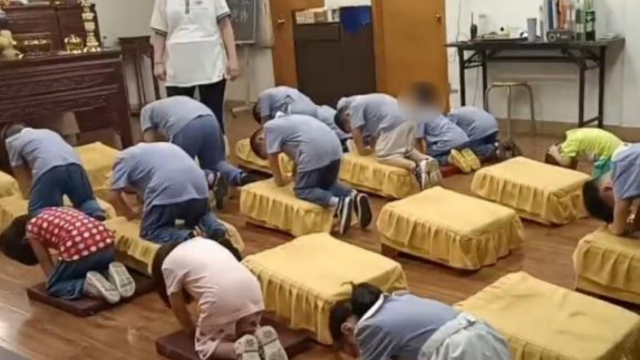On September 29, Xi Jinping personally presided a Politburo special study session on religion.

In the latest episode of “The Party Knows Best,” President Xi Jinping has once again taken center stage—not in a cathedral, mosque, or temple, but in the sanctum of state ideology—to preach the gospel of Sinicization. The term, once vaguely academic, now serves as a euphemism for religious domestication: a spiritual makeover that swaps incense for red banners and scripture for slogans.
On the afternoon of September 29, the Political Bureau of the CPC Central Committee held a special study session on “Systematically Advancing the Sinicization of Religion in China.” Presiding over the session, General Secretary Xi Jinping himself.
Xi didn’t just attend—he orchestrated. The CCTV broadcast of the session was less a policy update and more a liturgical performance, with Xi as high priest of a new orthodoxy. His message? “Party committees at all levels must strengthen their leadership over religious work.” In other words, the CCP isn’t just watching your prayers—it’s editing them.
The Sinicization campaign, originally pitched as a cultural harmonization effort, has evolved into a full-blown ideological retrofit. It’s not about making religion more Chinese; it’s about making it more compliant. The Party isn’t interested in theological nuance—it wants obedience, preferably in Mandarin in all provinces and “autonomous” regions, and ideally with a Xi quote or two.
At the Politburo study session, Xi offered a couple for future use: “China is a socialist country under the leadership of the Chinese Communist Party; actively guiding religion to adapt to socialist society is an inherent requirement. We must take the core socialist values as our guide, lead figures in the religious community and religious believers to firmly establish correct views of the nation, history, ethnicity, culture, and religion.” “Governing religious affairs in accordance with the law is the fundamental way to properly handle various contradictions and problems in the religious sphere. We must improve relevant laws and policies, carry out in-depth propaganda and education on the rule of law, promote strict law enforcement, and effectively raise the level of law-based governance in religious work.”
This is not the first time religion has been asked to bend the knee. But under Xi, the choreography is more precise, the expectations more rigid. Religious leaders are expected to be less shepherds of souls and more shepherds of slogans, guiding their flocks toward “core socialist values” with the fervor of a Party cadre. The sacred is being rebranded, and the divine must now pass through the filter of political correctness—with Chinese characteristics, of course.
The irony is rich. In a country that officially espouses atheism, the Party has become the most zealous proselytizer of all. Its gospel is nationalism, its saints are revolutionaries, and its miracles are economic statistics. The faithful are expected to genuflect not to gods, but to growth charts and five-year plans.
Xi is not just the architect, he is the icon. His personal involvement in religious affairs is no longer symbolic; it’s structural. The message is clear: religion must serve socialism, not the other way around. The Party is the new clergy, and Xi its infallible pontiff.
So while temples may still stand and churches may still sing, their spiritual autonomy is being quietly rewritten—one directive at a time. In Xi’s China, religion isn’t just Sinicized. It’s sanitized, standardized, and subordinated.
And if you’re wondering who’s really being worshipped, just look at the podium.
Source: Bitter Winter












